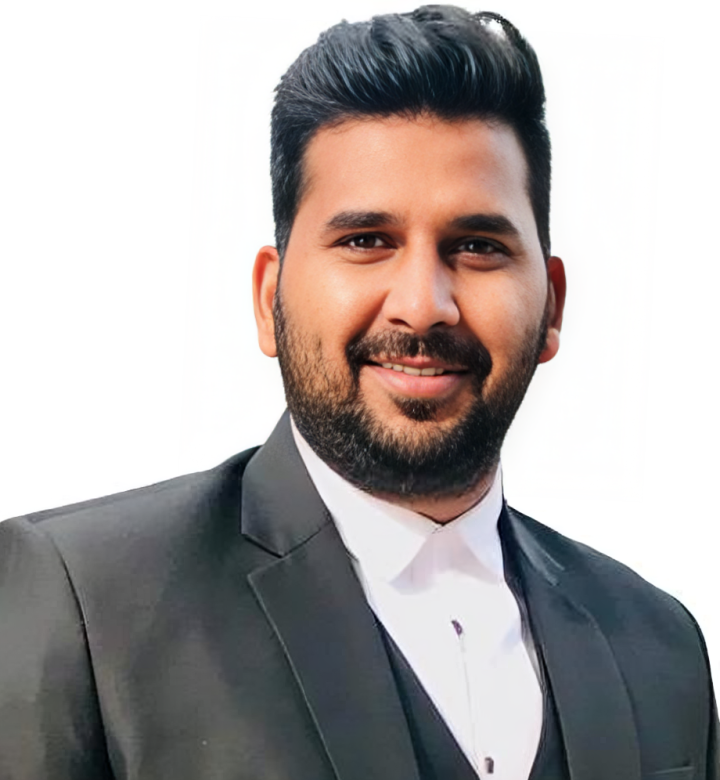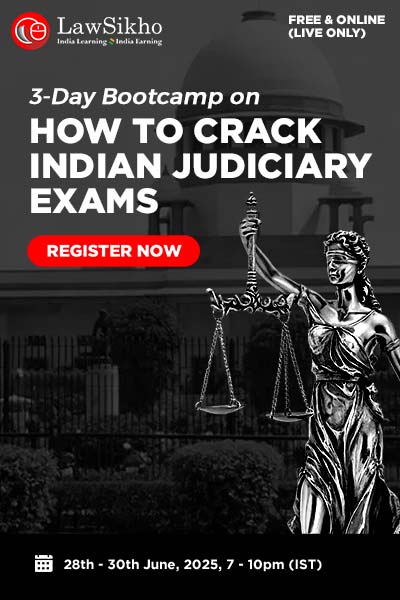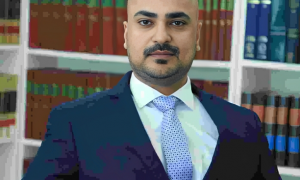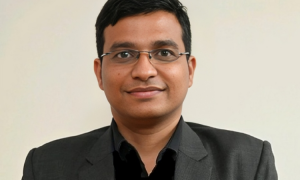This interview has been published by Anshi Mudgal and The SuperLawyer Team

What inspired you to pursue a career in law, and what key experiences during your time in law school had a lasting impact on your professional journey?
My inspiration to pursue a career in Law was to Strive for Justice i.e. to make a positive impact and promote fairness. Also, Law school’s rigorous academic environment and the complexity of legal issues attracted me as I enjoy problem-solving and critical thinking. During my time at Vivekananda Institutes of Professional Studies, participating in clinical programs, such as legal aid clinics or externships, provided hands-on experience and exposure to real-world legal issues. Also, engaging in moot court and mock trial competitions helped developing advocacy skills, building confidence, and fostering a sense of community among peers. Moreover, building relationships with professors, peers, and practitioners lead to valuable guidance and lifelong connections. Lastly, I would say, contributing to law reviews and journals helped develop research, writing, and analytical skills, while also providing a platform for publishing scholarly work.
After completing your law degree, you pursued a Master’s in Intellectual Property Law at Queen Mary University of London. What led you to specialize in IP law, and why did you choose this particular institution? Can you share your experience at the university, and did you face any challenges during the admission or enrolment process?
IP law is a complex and nuanced field, requiring a deep understanding of legal principles, technical concepts, and industry trends. I enjoyed the challenge of navigating this intricate landscape and helping clients navigate it. It also involves a high degree of creativity and problem-solving. I relished the opportunity to think outside the box, develop innovative solutions, and advocate for clients’ rights. IP law has a global reach, affecting businesses, artists, and inventors worldwide. I was drawn to the international aspects of IP law and the potential to make a meaningful impact on a global scale. Moreover, it allows me to work with innovators, entrepreneurs, and creatives who are shaping the future. I find it rewarding to collaborate with clients who are passionate about their work and committed to making a positive impact. And lastly, IP law offers a balance of litigation and transactional work, allowing me to engage in both contentious and non-contentious matters. I enjoy the variety and flexibility that this balance provides. I also find IP law to be a field where I could make a tangible difference in people’s lives and businesses. Protecting and promoting intellectual property rights gives me a sense of fulfilment and purpose.
I chose Queen Mary University of London to pursue my master’s in law for several compelling reasons. First and foremost, the university’s reputation for academic excellence was a major draw for me. The School of Law is ranked 7th in the UK and 32nd in the world by QS World University Rankings by Subject. Another significant factor was the diversity of programs and specializations offered by the university. I had the flexibility to tailor my degree to my interests and career aspirations. Additionally, the university’s location in London was a huge advantage. Being in the heart of London, I had access to numerous barristers’ chambers, law firms, and the Royal Courts of
Justice, providing unparalleled opportunities for networking, internships, and job placements. The expertise of the faculty was also a key consideration. The School of Law has a team of renowned academics and practitioners who are leaders in their fields, providing students with cutting-edge knowledge and insights. Lastly, the global perspective and connections offered by Queen Mary University of London were highly appealing. With partnerships and collaborations with top institutions around the world, I knew that I would be part of a vibrant and international community of scholars and professionals.
Despite a few challenges that generally appear while taking admission in a foreign university as an international student, I persevered, and the experience has been incredibly rewarding. The UK education system differs from my home countries. I had to adjust to a new grading system, coursework requirements, and exam formats. Obtaining a student visa was a complex and time-consuming process. I had to provide extensive documentation, proof of funds, and English language proficiency. Studying abroad is expensive. I had to secure scholarships, loans, or financial aid to cover tuition fees, living expenses, and other costs. However, after immense efforts and perseverance, I was able to secure a National Overseas Scholarship from the Government of India that covered tuition fees, living expenses and other costs.
In the early stages of your career, you had the opportunity to work with prominent lawyers and law firms. What were some enlightening experiences that deepened your understanding of law, particularly intellectual property, and motivated you to explore this area further?
I had several enlightening experiences that profoundly deepened my understanding of intellectual property (IP) law. I assisted in a patent litigation case involving a complex dispute over patent validity and infringement. This experience helped me grasp the intricacies of patent law, including claim construction, prior art, and the role of expert witnesses. I worked on a case involving the misappropriation of trade secrets by a former employee. This experience highlighted the importance of protecting confidential information, the challenges of proving trade secret misappropriation, and the strategic considerations involved in pursuing litigation. I conducted IP due diligence for a client acquiring a target company with a significant IP portfolio. This experience taught me the importance of thoroughly reviewing IP assets, identifying potential risks and liabilities, and negotiating IP-related provisions in transactional agreements. I worked with expert witnesses in several IP cases, which helped me understand the importance of expert testimony in IP litigation. I learned how to effectively communicate with experts, prepare them for testimony, and use their expertise to build strong cases. I assisted in several cross-border IP disputes, which highlighted the complexities of navigating different legal systems, jurisdictions, and cultural nuances. This experience taught me the importance of considering global IP strategies and coordinating with local counsel to achieve effective outcomes.I counseled clients on various IP-related issues, including IP protection strategies, licensing agreements, and dispute resolution. This experience helped me develop strong client counselling skills, including the ability to communicate complex IP concepts in a clear and concise manner.
Having worked on international compliance matters, what are some of the most common challenges you encounter when interpreting cross-border contracts, especially between U.S. companies and international partners? Additionally, could you share your observations on the key differences between common law contract principles and U.S. statutory law?
When interpreting cross-border contracts, especially between US companies and international counterparts, I commonly encounter the following challenges including Divergent Legal Systems, Language Barriers, Cultural and Business Practice Differences, Dispute Resolution Mechanisms and Compliance with Local Regulations. Staying current with changes in laws, regulations, and court decisions across multiple jurisdictions is an ongoing challenge when interpreting cross-border contracts. Cross
Border contracts often involve IP and data protection concerns and navigating these issues requires expertise in multiple jurisdictions. Contract drafting styles and conventions differ between the US and other countries and thus, ensuring consistency and clarity in contract language is vital.
There are few major differences between common law principles and US statutory law and therefore, the importance of understanding both while drafting, negotiating or litigating, is highlighted. Firstly, US statutory law does not imply terms into contracts as extensively as common law. Secondly, US statutory law does not require good faith performance to the same extent as common law. Thirdly, US statutory law does not emphasize reasonableness as much as common law and Lastly, US statutory law provides more guidance on contract interpretation, such as the UCC’s rules for interpreting contracts. On the other hand, common law emphasis on reasonableness in contract interpretation and performance.
In your current role, you handle trademark infringement cases. What are the primary challenges you face when navigating trademark infringement issues in India, and how do you address them?
Trademarks in India face various challenges in handling trademark infringement issues. Some of the common challenges are Complexity of Indian trademark law, Limited resources, Counterfeiting and piracy, etc. To address these challenges, conducting thorough searches of existing trademarks and pending applications can help identify potential infringement issues. Registering trademarks with the Indian Trademark Office provides legal protection and helps to prevent infringement. Sending cease and desist notices to infringers can be an effective way to resolve disputes without resorting to litigation. Using technology, such as trademark monitoring software, can help identify potential infringement issues and streamline enforcement efforts. Educating the public about trademark rights and infringement can help prevent unintentional infringement and promote a culture of respect for intellectual property.
Given your expertise in both Intellectual Property and commercial law, how do you approach cases where these areas intersect, particularly those involving brand protection, and commercial disputes? Could you share an example where you successfully integrated your knowledge of both fields to provide a comprehensive legal solution?
There are several areas of intersection between brand protection law and commercial dispute resolution, for instance, Disputes arising from trademark provisions in commercial agreements, such as licensing or franchise agreements; Allegations of unfair competition, such as false advertising, in commercial disputes; IP protection in commercial transactions, such as mergers and acquisitions; Addressing issues related to gray market goods and parallel imports, which can impact brand reputation and sales.
Here’s an example:
Case Study: Licensing Agreement Dispute
A US-based software company developed a popular software platform for managing supply chains. They entered into a licensing agreement with an India-based company to distribute the software in India. Later began to modify the software without former’s permission and sold it to other companies, violating the terms of the licensing agreement. It was discovered and a cease-and-desist notice was sent to the India based company. However, they refused to comply claiming that the modifications were necessary to adapt the software to the Indian market. Hence, a US based company needed a lawyer who could navigate both intellectual property (IP) and commercial law to resolve the dispute. By analysing and examining the licensing agreement, I negotiated with an Indian company leveraging the IP and commercial law analysis to reach a settlement. The resolution also involved mediation between both the companies and the Indian company was required to cease and desist from further modifying and distributing the software, and to pay damages for the unauthorized use and distribution of the software. Finally, I lead the parties to negotiate a revised licensing agreement that better protected US based company IP rights.
What tools, resources, or methods do you rely on to stay updated with the latest developments in trademark law and other related areas of commercial law?
Online resources like information provided by WIPO Academy on Intellectual property Rights including trademarks, patents, and copyrights, Industry conferences and seminar focused on trademark Law and commercial law, legal research tools, legal research platforms like Lexus-Nexus and West Law, professional associations like, Inta, etc. Helped us to stay updated on the latest developments.
What advice would you give to law students or young professionals aspiring to specialize in intellectual property law? What key skills and qualities do you believe are crucial for success in this field?
For law students aspiring to specialising in the field, engage in intellectual property-themed moot courts and competitions to develop their skills in this field. Attending conferences, seminars, and networking events to connect with experienced intellectual property lawyers can also be very helpful. Finally, following intellectual property blogs, news outlets, and social media to stay informed about the latest trends and cases is also significant.
For young professionals, it is important to develop a niche expertise by focusing on specific areas of intellectual property law, such as patents, trademarks, or copyrights. It is equally important to foster strong relationships with clients, colleagues, and mentors to build a professional network. They can also consider obtaining a certification from WIPO Academy or other similar organisation. Lastly, professionals must be prepared to pivot and adjust to new developments, technologies, and trends in the field.
Get in touch with Rakesh Tanwar –

























